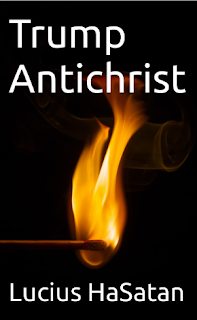It caught my eye as I entered the soft space of my little sanctuary this Sunday morning.
On a bitty table in our bitty vestibule, there's a small sign. ALL ARE WELCOME HERE, it says, because they are. Next to it, a guest book, where the rare soul who wanders into our humble church can leave their name and address. If you show up, we will recognize you, because entering a small church is not all that different from wandering into someone's home. It's hard stepping into a small room filled with strangers.
We don't train a spotlight on you when COME TO JESUS starts flashing on the screen at the front of the sanctuary, and start chanting "One of Us! One of Us!" We're just glad to have you there, and are happy to get to know you. People will greet you, and ask about you. If you come back to the fellowship hour for coffee and snacks, we'll receive you as a welcome guest. Some little churches can be exclusive, a circle of backs. But when we say we're friendly, we mean it.
Twelve years ago, on the Sunday before I was supposed to start at my church as the pastor, I showed up unannounced. Just came in, took a seat, and shared in worship. People who hadn't seen my face and didn't know who I was talked to me. Were friendly. Made me feel welcome. We're still that way.
But if I'm honest with myself, some guests? Some are less welcome than others.
Wedged behind the glass of our little welcome sign and obscuring the text, was one of them: A stinkbug, of the brown marmorated variety.
Stinkbugs are a plague in our neck of the woods, a recent invasive that has no natural predators in the Midatlantic. They breed ferociously and vigorously, and can quickly become an infestation. I visited a regular church attendee once, years ago, and her ramshackle compound in the woods outside of town was overrun with them. Surfaces crawled and shifted, the walls alive and seething with tens of thousands of the drab blocky brown forms. You can't stomp 'em or squish 'em, because, well, they stink. The little devil was not welcome.
I showed the critter and the sign to a church member, because it was such an amusing juxtaposition. Then I took the little beastie outside to dump it into the grass. It took a moment or three, as the bug clung fiercely to the sign with its little claws. I tapped and shook the sign, and still it held on, until finally it tumbled into the waiting greenery.
In the way of so many providential moments, it got me wondering about welcome.
Are all welcome? I will often see well-meaning Jesus folk posting earnest tweets from the latest batch of Christian influencers, chastising churches for not welcoming everyone.
How can we be truly welcoming, or so the trope goes, if we don't simply accept everyone? All means all! Just be your best self! Don't expect people to be something other than themselves! Expecting people to conform to the standards of the church is just so judgmental, so stifling. Why should the church define who you are? You define who you are! We're all individuals! We're all different!
On the one hand, this is a vital corrective to our tendency to view the stranger with fear, or to approach someone who is different from your community norm in a cruel or judgmental way. No one should ever feel rejected, or hated. That's antithetical to the Gospel. Neither should Christian communities set standards for themselves that mirror the biases of culture, only welcoming those who meet societal measures of acceptability. If Jesus taught us anything, it's that the marginalized, the despised, and the outcast are people you sit with, you eat with, and treat with love. He did it, and expects us to do the same. Commands it, even. Just as they are, as the old Gospel standard sings it.
On the other hand, while all are welcome to come and share in life together, the standards of the church for those who wish to actually join us aren't somehow inherently invalid. "Church" can be code for "bad" for certain circles of disruptive churchy influencers, after all.
But what is "church" but a gathering of human beings who have collectively chosen to follow Jesus? That goes far deeper than amorphous, subjective self-actualization.
The teachings of the Gospel, taken at all seriously, do create expectations of us. They establish norms. They set standards. There are attitudes of the soul that aren't optional if you're going to be part of a healthy Christian community, expectations that are necessary for the integrity of our calling to life together.
The Sermon on the Mount, the core teachings of Jesus? There's some stuff in there that's pretty danged normative. If you want to be part of the church, we expect you to take Jesus seriously. We expect you to love your enemies. We expect you to turn the other cheek. We expect you to walk the extra mile. We expect you to be humble, to set aside anxiety about wealth and material possessions, to reject Money as your master, to be unswayed by the siren song of power.
The Apostle Paul would have the church show love, joy, peace, patience, kindness, generosity, faithfulness, gentleness, and self-control. Do y'all have a problem with those things? Find them "oppressive?" Some do. Maybe you prefer instant gratification and snark, material success and doing whatever you like whenever you feel like it, gettin' what's yours, kicking butt and taking names. If those are the consumer culture norms that float your boat, well, again, maybe Jesus isn't for you.
If you want to be part of the church, your understanding of "your best self" must be set by those teachings that church has always understood...always, since the very beginning...as our foundation. Sure, you can be wrasslin' with them. You can be in the midst of that struggle. You won't be perfect. None of us are.
But if you openly define "your best self" by standards other than the core teachings of Jesus, if wealth and self, power and partisanship are your guidestars, I'm not sure you're ready.
We'll still have coffee warm for you. If you're hungry, we'll feed you. We'll still be in conversation with you. We'll still love you. You'll be welcome for as long as you choose to come by.
Unless you're a brown marmorated stinkbug. Then, not so much.















